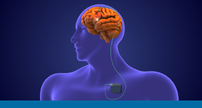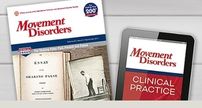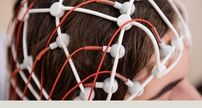
Course Listing
Advance your knowledge in engaging, interactive courses developed and taught by leaders in the field.
Browse All MDS Courses
New courses are added regularly. If there are not courses listed in the category you are searching, more will be scheduled at a later date. Check back soon or sign up for email notifications.
School for Deep Brain Stimulation and Infusion Therapy in Parkinson’s Disease
In-PersonAsia / Oceania
Bangkok, Thailand
May 06, 2026 - May 07, 2026
Experienced / Intermediate
1070 <p>The <em>MDS-AOS School for Deep Brain Stimulation and Infusion Therapy in Parkinson’s Disease</em> aims to cultivate the next generation of experts in DBS and infusion therapy for PD, providing them with a comprehensive overview, case-based discussion and hands-on workshop in DBS and infusion therapy in PD. This year's school will start with the basics and then discuss recent updates of DBS and infusion therapy in PD.<br /><br /><span style="color:#990000;"><strong>REGISTRATION DEADLINE: April 22, 2026</strong></span><strong></strong><strong></strong></p> Clinical Trials, Deep brain stimulation, Focused Ultrasound, Gene Therapies, Infusion therapy, Parkinson Disease/Hypokinetic Movement Disorders, Parkinson's Disease (PD), Therapies-Surgical 690 0.00 https://education.movementdisorders.org/Detail/1070/MDS-AOS-School-for-Deep-Brain-Stimulation-and-Infusion-Therapy-in-Parkinson’s-Disease https://education.movementdisorders.org/Upload/ActivityImages/26AOSNMOD_202x108589130.png https://education.movementdisorders.org/Upload/BannerImages/26AOSNMOD_783x404326018.jpg 2026-05-06T00:00:00 2026-05-07T00:00:00 King Chulalongkorn Memorial Hospital, Bangkok <p><br></p><p><br></p> MDS Education <p><a href="https://d1t84l7yt030ad.cloudfront.net/FroalaFiles/26AOSNMOD Course Schedule_no faculty_28012026040724.pdf" rel="noopener noreferrer" target="_blank"><img src="https://s3-us-east-2.amazonaws.com/mds-lms/FroalaFiles/Course schedule_23012024043738.png" style="width: 125px; height: 125px;" class="fr-fic fr-dib"></a><strong>Course Schedule </strong><a href="https://form.jotform.com/260276276503154" rel="noopener noreferrer" target="_blank"><img src="https://s3-us-east-2.amazonaws.com/mds-lms/FroalaFiles/Travel assistance_23012024043912.png" style="width: 125px; height: 125px;" class="fr-fic fr-dib"></a><strong>Travel Bursary </strong><a href="https://d1t84l7yt030ad.cloudfront.net/FroalaFiles/Faculty Listing_LMS_CDs_28012026040755.pdf" rel="noopener noreferrer" target="_blank"><img src="https://s3-us-east-2.amazonaws.com/mds-lms/FroalaFiles/Faculty Details_23012024043924.png" style="width: 125px; height: 125px;" class="fr-fic fr-dib"></a><strong>Course Faculty</strong></p><p><br></p><p><em>Schedule as of January 30, 2026 </em></p><p><strong><em><span style="color: rgb(175, 38, 38);">Travel Bursary Deadline:</span> </em></strong><em>February 20, 2026</em><br><br></p><p><strong>REGISTRATION FEES</strong><br><strong>Members: </strong>$200 USD<br><strong>Junior & No-Fee Members: </strong>$150 USD<br><strong>Non-Members: </strong>$200 USD</p><p>*<em>Non-members wishing to apply for MDS Membership to receive the MDS Member rate for this course will need to apply for membership no later than 2 weeks in advance of the close of registration.</em></p><p><a href="https://s3-us-east-2.amazonaws.com/mds-lms/FroalaFiles/VISA%20STATEMENT%20CANCELLATION%20LANGUAGE_24012024041714.pdf">Click here to view the MDS Regional Course Cancellation Policy & Visa Assistance Information</a></p><p><br></p><p><span style="background-color: null;"><strong>COURSE VENUE</strong></span></p><p>King Chulalongkorn Memorial Hospital</p><p>Bangkok, Thailand<br><br></p><p><strong>SCHEDULE OVERVIEW<em> </em></strong></p><p>Day 1: Wednesday, May 6, 2026 | 8:15 - 17:10<br>Day 2: Thursday, May 7, 2026 | 8:30 - 17:20</p><p><br></p><p><strong>LEARNING OBJECTIVES</strong></p><p>Upon completion of this activity, learners will be able to: </p><p>1. Develop the multi-disciplinary team for deep brain stimulation and infusion therapy</p><p>2. Classify the candidates of deep brain stimulation and infusion therapy</p><p>3. Compare the various targets for deep brain stimulation and choose the best target for subjects</p><p>4. Act initial programming and troubleshooting in patients with deep brain stimulation and those with infusion therapy</p><p>5. Act with deep brain stimulation programmer and infusion pump during hands-on workshops</p><p>6. Establish a local and international network of young clinicians and researchers, fostering collaborations and facilitating future research in the field of deep brain stimulation</p><p><br></p><p><strong>INTENDED AUDIENCE</strong></p><p>The target audience is clinicians, movement disorder specialists, fellows, neurology residents, clinical researchers, and clinical nurse specialists.<br><br></p> Bangkok 0 /Courses/School-for-Deep-Brain-Stimulation-and-Infusion-Therapy-in-Parkinsons-Disease.htm School for Deep Brain Stimulation and Infusion Therapy in Parkinson’s Disease 2026-01-29T12:01:06.523 0 0 Experienced / Intermediate Clinician Clinician-Movement Disorder Specialist Fellow Fellow-Clinical Fellow-Movement Disorders Health Professional-Clinical Nurse Specialist Researcher-Clinical Resident-Neurology English Asia / Oceania In-Person Thailand
TWSTRS: Toronto-Western Spasmodic Torticollis Rating Scale Training
On Demand
COA / Rating Scale Trainings
90 Minutes
920 <p>The video demonstrates the 10 categories in the TWSTRS scale, with verbal and visual examples of scoring in each category.</p><br /><p>Comella, C.L., Stebbins, G.T., Goetz, C.G., Chmura, T.A., Bressman, S.B. and Lang, A.E. (1997), Teaching tape for the motor section of the toronto western spasmodic torticollis scale. Mov. Disord., 12: 570-575. <a href="https://doi.org/10.1002/mds.870120414 " target="_blank">https://doi.org/10.1002/mds.870120414 </a><br /></p> Biomarkers & Diagnostic Tools, Dystonia, Hyperkinetic Movement Disorders, Rating Scales C.L. Comella 90 0.00 https://education.movementdisorders.org/Detail/920/TWSTRS:-Toronto-Western-Spasmodic-Torticollis-Rating-Scale-Training https://education.movementdisorders.org/Upload/ActivityImages/COA-training-LMS699655.jpg 2022-12-31T00:00:00 2028-12-31T00:00:00 <p>1. Active Internet connection (DSL or Cable). Dial-up connection will have constant buffering problem.<br>2. Compatible with Windows PC and MAC (256 MB of RAM or higher)<br>3. Activity is best viewed on Internet Explorer 9.0 or higher, Safari 5.0 or higher and Firefox 29.0 or higher<br>4. Adobe Flash Player 12.0 (or higher).<br>5. Adobe Reader to print certificate.</p> <p><strong>Faculty</strong></p><p>Cynthia L. Comella, MD - Rush University Medical Center, Chicago, IL, USA</p><p>Glenn T. Stebbins, PhD - Rush University Medical Center, Chicago, IL, USA</p><p>Teresa A. Chmura, BS - Rush University Medical Center, Chicago, IL, USA</p><p>Christopher G. Goetz, MD - Rush University Medical Center, Chicago, IL, USA</p><p>Susan B. Bressman, MD - Icahn School of Medicine at Mount Sinai, New York, NY, USA</p><p>Anthony E. Lang, MD, FRCPC - Toronto Western Hospital, Toronto, ON, Canada</p> MDS Clinical Outcome Assessments Program 0 /Courses/TWSTRS-Toronto-Western-Spasmodic-Torticollis-Rating-Scale-Training.htm TWSTRS: Toronto-Western Spasmodic Torticollis Rating Scale Training 2026-01-21T15:00:50.013 0 0 COA / Rating Scale Trainings COA Certificate English On-Demand USA
Clinical Approach to Movement Disorders: Case-Based Video Rounds
Live OnlineEurope
Feb 24, 2026 - Mar 24, 2026
Foundational / Beginner
1067 The <em>MDS-ES Clinical Approach to Movement Disorders: Case-Based Video Rounds</em> is case-based course (3 sessions, 1.5-hour each) designed as an interactive video-round format focusing on the clinical evaluation of movement disorders. Each session's discussion will be moderated by MDS experts along with experts from the MDS Affiliate societies, who will guide the analysis, highlight key clinical features, and place the cases into a practical diagnostic and management framework. A total of three cases will be presented per session with cases selected through an open call for video submissions from clinicians across Europe, ensuring a broad representation of phenotypes and clinical challenges. Biomarkers, Biomarkers & Diagnostic Tools, Chorea/Huntingtons Disease (HD), Corticobasal Syndrome (CBS)/Corticobasal Degeneration (CBD), Dystonia, Freezing of Gait (FOG), Genetics, Hyperkinetic Movement Disorders, Lewy-body dementia (LBD), Multiple Systems Atrophy (MSA), Myoclonus, Neuroimaging, Neuropathology, Parkinson Disease/Hypokinetic Movement Disorders, Parkinson's Disease (PD), Progressive Supranuclear Palsy (PSP), Rating Scales, Tics/Tourettes syndrome (TS), Tremor/Essential Tremor (ET) 90 0.00 https://education.movementdisorders.org/Detail/1067/MDS-ES-Clinical-Approach-to-Movement-Disorders:-Case-Based-Video-Rounds https://education.movementdisorders.org/Upload/ActivityImages/26ESSERIE_202x108154226.png https://education.movementdisorders.org/Upload/BannerImages/26ESSERIE_734x404168944.jpeg 2026-02-24T00:00:00 2026-03-24T00:00:00 MDS Education <p><a href="https://d1t84l7yt030ad.cloudfront.net/FroalaFiles/26ESSERIES Series Schedule_12012026034216.pdf" rel="noopener noreferrer" target="_blank"><img src="https://s3-us-east-2.amazonaws.com/mds-lms/FroalaFiles/1733945513728_11122024013152.png" class="fr-fic fr-dii" style="width: 125px; height: 125px;"></a><strong>Course Schedule </strong><strong> </strong> <a href="https://d1t84l7yt030ad.cloudfront.net/FroalaFiles/Faculty Listing_LMS_CDs_16012026093007.pdf" rel="noopener noreferrer" target="_blank"><img src="https://s3-us-east-2.amazonaws.com/mds-lms/FroalaFiles/1733945513883_11122024013153.png" class="fr-fic fr-dii" style="width: 125px; height: 125px;"></a><strong>Course Faculty</strong><strong> </strong></p><p><span style="color: rgb(184, 49, 47);"><br></span></p><p><strong>REGISTRATION FEES</strong><br><strong>Members & Non-Members: </strong>$0 USD</p><p><br></p><p><strong>COURSE SCHEDULE</strong><strong><em> </em></strong></p><p>Tuesday, February 24, 2026 | 17:00 - 18:30 CET</p><p>Tuesday, March 10, 2026 | 17:00 - 18:30 CET</p><p>Tuesday, March 24, 2026 | 17:00 - 18:30 CET</p><p><br></p><p><strong>LEARNING OBJECTIVES</strong></p><p>Upon completion of this activity, learners will be able to: </p><p>1. Identify and describe the key phenomenological features of common and selected uncommon movement disorders using video-based clinical observation</p><p>2. Compare and associate observed movement disorder features with the most relevant differential diagnoses in a structured clinical framework</p><p>3. Demonstrate a stepwise, practical approach to evaluating video cases of movement disorders prior to advanced diagnostic testing</p><p>4. Plan an initial diagnostic and referral strategy for patients with suspected movement disorders based on clinical findings and recognized red flags</p><p><br></p><p><strong>INTENDED AUDIENCE</strong></p><p>The target audience is young neurologists or neurologists interested in movement disorders, from all European countries, as well as members of affiliated movement disorder societies.<br><br><br></p> <p><strong>OPEN CALL FOR VIDEO CASE SUBMISSIONS</strong><br>Cases will be selected through an open call for video submissions from clinicians across Europe, ensuring a broad representation of phenotypes and clinical challenges. Registered participants are invited to submit a video case for consideration to be presented at one of the three series sessions. Up to three (3) video cases will be selected per session.<br><br><strong><span style="color: rgb(184, 49, 47);">Video Case Submission Deadline for S</span></strong><span style="color: rgb(184, 49, 47);"><strong>ession 1:</strong></span><strong><span style="color: rgb(184, 49, 47);"> February 1, 2026</span></strong><br><br><span style="color: rgb(0, 0, 0);">Submissions will be reviewed on a rolling basis, with notifications sent to those selected 7-10 days before the session.</span><br><br><span style="color: rgb(0, 0, 0);"><strong>Video Case Submission Deadline for Session 2: </strong>February 15, 2026</span><br><span style="color: rgb(0, 0, 0);"><strong>Video Case Submission Deadline for Session 3:</strong> March 1, 2026</span><br><br><strong>GUIDELINES</strong><br>Video cases should be submitted via the Submission Form linked in the Registration Confirmation Email. All video case submissions should follow the guidelines outlined and use the template provided.<br><br><span style="color: rgb(0, 0, 0);"><strong>DISCUSSION FORMAT</strong><br>The discussion will be moderated by three MDS experts along with the invited experts from the three MDS Affiliate societies, who will guide the analysis, highlight key clinical features, and place the cases into a practical diagnostic and management framework. The course emphasizes bedside observation, phenomenology, and clinical reasoning rather than advanced investigations.</span><br><br><br></p> 0 /Courses/Clinical-Approach-to-Movement-Disorders-Case-Based-Video-Rounds.htm Clinical Approach to Movement Disorders: Case-Based Video Rounds 2026-01-13T12:01:07.073 0 0 Foundational / Beginner Clinician Clinician-General Neurologist Clinician-Movement Disorder Specialist Fellow Fellow-Clinical Fellow-Clinical Research Fellow-Movement Disorders Health Professional-Clinical Nurse Specialist Resident Resident-Neurology Student Student-Medical English Europe Live Online
A Comprehensive Review of Movement Disorders for the Clinical Practitioner
In-PersonPan America
Aspen, USA
Jul 26, 2026 - Jul 30, 2026
Foundational / Beginner
1063 <p>The Aspen Course is a unique opportunity for those early career movement disorders specialists, in particular Movement Disorders Fellows, to advance their knowledge and evaluate their careers through advice from advanced professionals in the field. The course program will discuss the classification of these disorders, their differential diagnosis, and their treatment, covering the phenomenology, pathophysiology, pathogenesis, epidemiology, genetics, and other aspects of the entire field of Movement Disorders. </p><p><em><strong>Space is limited; register early to avoid being placed on the waitlist.</strong></em><br /><br /><strong>REGISTRATION DEADLINE:<em> </em></strong>July 10, 2026</p><p><br /></p> Ataxias, Botulinum toxin, Chorea/Huntingtons Disease (HD), Clinical Trials, Corticobasal Syndrome (CBS)/Corticobasal Degeneration (CBD), Deep brain stimulation, Dopaminergic medications, Drug-induced Movement Disorders/Tardive dyskinesia, Dystonia, Freezing of Gait (FOG), Hyperkinetic Movement Disorders, Infusion therapy, Lewy-body dementia (LBD), Medications for motor complications, Medications for motor symptoms, Medications for non-motor symptoms, Multiple Systems Atrophy (MSA), Myoclonus, Other Movement Disorders, Parkinson Disease/Hypokinetic Movement Disorders, Parkinson's Disease (PD), Progressive Supranuclear Palsy (PSP), Therapies-Pharmacological, Therapies-Surgical, Tics/Tourettes syndrome (TS), Tremor/Essential Tremor (ET) 1305 18.75 https://education.movementdisorders.org/Detail/1063/A-Comprehensive-Review-of-Movement-Disorders-for-the-Clinical-Practitioner https://education.movementdisorders.org/Upload/ActivityImages/24ASPEN_202x108254747.png https://education.movementdisorders.org/Upload/BannerImages/26ASPEN_734x404662831.jpg 2026-07-26T00:00:00 2026-07-30T00:00:00 Aspen, Colorado <p><br></p><p><br></p> MDS Education <p><a href="https://d1t84l7yt030ad.cloudfront.net/FroalaFiles/26ASPEN%20Course%20Schedule_17122025081005.pdf" rel="noopener noreferrer" target="_blank"><img src="https://s3-us-east-2.amazonaws.com/mds-lms/FroalaFiles/Course schedule_23012024043738.png" style="width: 125px; height: 125px;" class="fr-fic fr-dib"></a><strong>Course Schedule</strong><strong> </strong><strong> </strong><a href="https://d1t84l7yt030ad.cloudfront.net/FroalaFiles/26ASPEN%20Faculty%20Listing_17122025081542.pdf" rel="noopener noreferrer" target="_blank"><img src="https://s3-us-east-2.amazonaws.com/mds-lms/FroalaFiles/Faculty Details_23012024043924.png" style="width: 125px; height: 125px;" class="fr-fic fr-dib"></a><strong>Course Faculty</strong></p><p><br></p><p><em>Schedule as of December 16, 2025</em></p><p><br></p><p><strong>REGISTRATION FEES</strong><br><strong>Members:</strong> $715 USD<br><strong>Members</strong><strong>: Junior / HP / Basic Science / No Fee:</strong> $450 USD<br><strong>Non-Members*:</strong> $1250 USD</p><p>*<em>Non-members wishing to apply for MDS Membership to receive the MDS Member rate for this course will need to apply for membership no later than 2 weeks in advance of the close of registration.</em></p><p><a href="https://s3-us-east-2.amazonaws.com/mds-lms/FroalaFiles/VISA%20STATEMENT%20CANCELLATION%20LANGUAGE_24012024041714.pdf">Click here to view the MDS Regional Course Cancellation Policy & Visa Assistance Information</a></p><p><br></p><p><span style="background-color: null;"><strong>COURSE VENUE</strong></span></p><p>St. Regis Aspen Hotel</p><p>315 Dean Street</p><p>Aspen, CO, USA</p><p><br></p><p><strong>LEARNING OBJECTIVES</strong></p><p>Upon completion of this activity, learners will be able to: </p><p>1. Recognize and classify parkinsonism, tremor, and other movement disorders</p><p>2. Differentiate atypical parkinsonism from Parkinson’s disease</p><p>3. Appraise treatment approaches for parkinsonism, dystonia, tremor, chorea, and other movement disorders</p><p>4. Evaluate the phenomenology and classification of functional (psychogenic) disorders</p><p>5. Formulate and classify gait disorders in parkinsonism, ataxia, and other hypokinetic or hyperkinetic movement disorders</p><p><br></p><p><strong>INTENDED AUDIENCE</strong></p><p>This activity is intended for clinicians, researchers, post-doctoral fellows, medical residents, medical students, allied health professionals with an interest in current clinical trends and approaches for diagnosis and treatment of movement disorders.</p><p><br></p><p style="text-align: center;"><strong><span style="color:#cc0000;">The tradition of the Aspen Course</span></strong><br><span style="color:#cc0000;"><strong><em>"As a rite of passage every movement disorder fellow must pass through the Aspen course."</em></strong></span><br><span style="color:#cc0000;"><strong> </strong></span><br><span style="color:#cc0000;"><strong>The legend of the Aspen course </strong></span><br><strong><em><span style="color:#cc0000;">"Anyone serious about movement disorders has taken the Aspen course at least once."</span></em></strong></p> <p>This program will take place live and in-person on July 26 – 30, 2026 at the St. Regis Hotel in Aspen, CO, USA.</p><p><br></p><p><strong>The St. Regis Aspen Resort</strong></p><p>315 E. Dean Street</p><p>Aspen, CO, USA</p><p>81611</p><p><br></p><p><strong>ACCOMODATION RESERVATIONS</strong></p><p>MDS has reserved a block of rooms at the <strong>St. Regis</strong> at a discounted rate for <strong>July 26 – 29, 2026</strong>.</p><p><strong>Deadline to book: Wednesday, June 26, 2026.</strong></p><p><br></p><p>To Reserve:</p><p><strong>Phone: </strong>1<strong> </strong>(888) - 627-7198</p><p><br></p><p>Ask for the room block under "A Comprehensive Review of Movement Disorders for the Clinical Practitioner."</p><p><strong>Online: </strong><a href="https://www.marriott.com/event-reservations/reservation-link.mi?id=1754605739063&key=GRP&app=resvlink">https://www.marriott.com/event-reservations/reservation-link.mi?id=1754605739063&key=GRP&app=resvlink</a></p><p><br></p><p>If your stay is outside the dates, please call the number above to book.</p><p><br></p><p><strong>CANCELLATION POLICY</strong><br>All reservations require full prepayment of room and tax, or a major credit card guarantee. Cards will be charged <strong>30 days prior to arrival.</strong><br>Cancellations <strong>more than 30 days</strong> before arrival incur <strong>no penalty</strong>.<br>Cancellations <strong>within 30 days</strong>, early departures, and no-shows <strong>forfeit all deposits</strong><em>.</em></p> Aspen 0 /Courses/A-Comprehensive-Review-of-Movement-Disorders-for-the-Clinical-Practitioner3.htm A Comprehensive Review of Movement Disorders for the Clinical Practitioner Aspen Course 2026-01-09T18:01:01.590 0 0 Foundational / Beginner Clinician Fellow-Clinical Fellow-Movement Disorders Resident-Neurology CME English Pan America In-Person USA
MDS African Parkinson’s Disease and Movement Disorders Conference (APMC)
In-PersonAfrica
Nairobi, Kenya
Mar 10, 2026 - Mar 11, 2026
Experienced / Intermediate, Expert / Advanced
1065 <p>The MDS African Parkinson’s Disease and Movement Disorders Conference (APMC) brings together clinicians, researchers and experienced allied health professionals for practical, skills-based education in Movement Disorders across Africa. The program features interactive workshops on clinical evaluation and genetic testing, expert-led sessions on Parkinson’s disease in a regional setting, acquired Movement Disorders, multidisciplinary care, and emerging topics, as well as a panel highlighting successful African collaborations and combating stigma in Parkinson’s disease and movement disorders.</p><p><span style="font-size:11.0pt;"> </span></p> Ataxias, Biomarkers, Biomarkers & Diagnostic Tools, Botulinum toxin, Chorea/Huntingtons Disease (HD), Dopaminergic medications, Drug-induced Movement Disorders/Tardive dyskinesia, Dystonia, Epidemiology, Epidemiology & Environment, Functional Movement Disorders, Genetic & Hereditary Disorders, Genetics, Hyperkinetic Movement Disorders, Infusion therapy, Movement Disorders Emergencies, Myoclonus, Neuroimaging, Occupational Therapy, Other Movement Disorders, Parkinson Disease/Hypokinetic Movement Disorders, Parkinson's Disease (PD), Physical Therapy/Physiotherapy, Rare/Uncommon Movement Disorders, Risk Factors, Speech Therapy, Therapies-Other, Therapies-Pharmacological, Tics/Tourettes syndrome (TS), Toxic Exposures, Tremor/Essential Tremor (ET) 1170 0.00 https://education.movementdisorders.org/Detail/1065/MDS-African-Parkinson’s-Disease-and-Movement-Disorders-Conference-(APMC) https://education.movementdisorders.org/Upload/ActivityImages/26AFRGP2_202x108872238.png 2026-03-10T00:00:00 2026-03-11T00:00:00 Nairobi <p><br></p><p><img src="https://s3-us-east-2.amazonaws.com/mds-lms/FroalaFiles/GP2_21032024044229.jpg" style="width: 300px;" class="fr-fic fr-dib"></p><p><br></p><p><em>Supported in part by the Global Parkinson’s Genetics Program, a program of the Aligning Science Across Parkinson’s initiative and implemented by the Michael J. Fox Foundation</em> </p> MDS Education <p><strong><img src="https://d1t84l7yt030ad.cloudfront.net/FroalaFiles/Course schedule_13052025105320.png" style="width: 125px; height: 125px;" class="fr-fic fr-dib"></strong><a href="https://execinccom-my.sharepoint.com/:b:/g/personal/treed_execinc_com/IQCv1vnTd_Q2RJMmoTxixxCvAVuVg4tOWUFca0MOoKqFhPE?e=U0anKF" rel="noopener noreferrer" target="_blank"><strong> Conference Schedule </strong> </a><a href="https://form.jotform.com/260055452458154" rel="noopener noreferrer" target="_blank"><img src="https://s3-us-east-2.amazonaws.com/mds-lms/FroalaFiles/Travel assistance_23012024043912.png" style="width: 125px; height: 125px;" class="fr-fic fr-dib"></a><a href="https://form.jotform.com/260055452458154" rel="noopener noreferrer" target="_blank"><strong>Travel Bursary </strong></a><strong> </strong><img src="https://s3-us-east-2.amazonaws.com/mds-lms/FroalaFiles/Faculty Details_23012024043924.png" style="width: 125px; height: 125px;" class="fr-fic fr-dib"><a href="https://execinccom-my.sharepoint.com/:b:/g/personal/treed_execinc_com/IQBWWB0q4LFzQaaP6HFHAHV3AdEDj515nDsPK6mk25mCD5k?e=i6zCCG" rel="noopener noreferrer" target="_blank"><strong>Conference</strong><strong> Faculty</strong></a></p><p><br></p><p><em>Program </em>S<em>chedule will be shared in the coming week</em></p><p><strong><em><span style="color: rgb(175, 38, 38);">Application/Travel Bursary Deadline:</span> </em></strong><em>January 22</em><em>, 2026</em></p><p><em>*Limited Spaces Available*</em></p><p><br></p><p><strong>REGISTRATION FEES</strong><br>Complimentary registration provided to those accepted.</p><p><a href="https://s3-us-east-2.amazonaws.com/mds-lms/FroalaFiles/VISA%20STATEMENT%20CANCELLATION%20LANGUAGE_24012024041714.pdf"><em>Click here to view the MDS Regional Course Cancellation Policy & Visa Assistance Information</em></a></p><p><br></p><p><strong>SCIENTIFIC PLANNING COMMITTEE</strong></p><p>Ali Shalash, MD, PhD </p><p>Nijedka Okubadejo, MD, FMCP, FAAN, FANA</p><p>Oluwadamilola Ojo, MBBS, MD, FMCP</p><p>Samia ben Sassi, MD</p><p>Maouly Fall, MD</p><p>Yared Zewde, MD</p><p>Daniel Gams Massi, MD</p><p>Jonathan Carr, MBChB, PhD</p><p>Mary Agoriwo, MSc, PhD (C)</p><p>Houyam Tibar, Associate Professor</p><p>Juzar Hooker, MB ChB MMed DCN FCP </p><p>Dilraj S. Sokhi, FRCP(Edin)</p><p><br></p><p><strong>LEARNING OBJECTIVES</strong></p><p>Upon completion of this activity, learners will be able to: </p><ol><li data-end="386" data-start="223"><p data-end="386" data-start="226">Apply a structured clinical approach to evaluating Movement Disorders, including the differentiation of parkinsonism, hyperkinetic disorders, and ataxias.</p></li><li data-end="536" data-start="388"><p data-end="536" data-start="391">Identify appropriate indications and strategies for genetic testing in Movement Disorders, including recognition of key clinical red flags.</p></li><li data-end="735" data-start="538"><p data-end="735" data-start="541">Describe the genetic, environmental, and clinical factors influencing Parkinson’s disease in Africa, and discuss practical strategies for diagnosis and management in low-resource settings.</p></li><li data-end="878" data-start="737"><p data-end="878" data-start="740">Recognize and manage major categories of acquired Movement Disorders, including infectious, autoimmune, and drug-induced conditions.</p></li><li data-end="1060" data-start="880"><p data-end="1060" data-start="883">Implement multidisciplinary, patient-centered approaches to Movement Disorders care, including the management of emergencies, functional disorders, and rehabilitation needs.</p></li></ol><p><br></p><p><strong>INTENDED AUDIENCE</strong></p><p>The MDS African Parkinson’s Disease and Movement Disorders Conference (APMC) is designed for experienced and expert clinicians, researchers, allied health professionals, and trainees involved in Movement Disorders care across Africa who seek to strengthen their clinical knowledge, practical skills, and understanding of regional diagnostic and multidisciplinary care approaches.</p> Nairobi 0 /Courses/MDS-African-Parkinsons-Disease-and-Movement-Disorders-Conference-APMC.htm MDS African Parkinson’s Disease and Movement Disorders Conference (APMC) 2026-01-07T12:01:03.130 0 0 Experienced / Intermediate Expert / Advanced Clinician Clinician-General Neurologist Clinician-Movement Disorder Specialist Clinician-Other Clinician-Researcher Fellow Fellow-Clinical Fellow-Clinical Research Fellow-Movement Disorders Fellow-Other (Post Doc) Health Professional-Clinical Nurse Specialist Health Professional-Genetic Counseling Researcher Researcher-Basic Science Researcher-Clinical Researcher-Other Resident Resident-Neurology Student-Graduate English Africa In-Person Kenya
Journal CME 40.12: Effects of a Four-Strain Probiotic on Gut Microbiota, Inflammation, and Symptoms in Parkinson's Disease: A Randomized Clinical Trial
On Demand
Journal CME
60 Minutes
Experienced / Intermediate
1064 <p>The Journal CME 40.12 article aims to evaluate the effects of a probiotic (Lacticaseibacillus rhamnosus, Lactobacillus acidophilus, Lactiplantibacillus plantarum and Enterococcus faecium) on gut microbiota, inflammation, motor and non-motor symptoms (NMS) in PwP and constipation.</p> Etiology & Pathophysiology, Microbiome, Nutritional Therapy, Parkinson Disease/Hypokinetic Movement Disorders, Parkinson's Disease (PD), Therapies-Other Valentina Leta, PhD 60 1.00 https://education.movementdisorders.org/Detail/1064/Journal-CME-40-12:-Effects-of-a-Four-Strain-Probiotic-on-Gut-Microbiota,-Inflammation,-and-Symptoms-in-Parkinson's-Disease:-A-Randomized-Clinical-Trial https://education.movementdisorders.org/Upload/ActivityImages/Journal-CME562837664663.jpg 2025-12-18T00:00:00 2026-12-18T00:00:00 <p><strong>ACCREDITATION STATEMENT</strong></p><p>This activity has been planned and implemented in accordance with the accreditation requirements and policies of the Accreditation Council for Continuing Medical Education (ACCME). The International Parkinson and Movement Disorder Society is accredited by the ACCME to provide continuing medical education for physicians.</p><p><br></p><p><strong>CREDIT DESIGNATION STATEMENT</strong></p><p>The International Parkinson and Movement Disorder Society designates this activity for a maximum of 1 <em>AMA PRA Category 1 Credits™</em>. Physicians should only claim credit commensurate with the extent of their participation.</p><p><br></p><p><strong>FACULTY DISCLOSURE</strong></p><p>All individuals in control of content for this activity are required to disclose all financial relationships with ineligible companies (as defined by the ACCME) over the last 24 months. Disclosure information is available <a href="https://d1t84l7yt030ad.cloudfront.net/FroalaFiles/Journal%20CME%2040.12%20-%20Disclosures_17122025024322.pdf" rel="noopener noreferrer" target="_blank"><u>HERE</u></a>. All relevant financial relationships have been mitigated in advance of this program.</p><p><br></p><p><strong>METHOD OF PARTICIPATION</strong></p><p>Each module will take approximately one (1) hour to complete. Upon reading the article, participants will take a post-test and must receive a grade of 75% or higher to pass. Participants are allowed multiple attempts to complete the post-test. Once the post-test is passed, participants are required to complete the module evaluation.</p><p><br></p><p><strong>SATISFACTORY COMPLETION</strong></p><p>Participants must complete an evaluation for each session they attend to receive continuing medical education credit. Your chosen session(s) must be attended in their entirety. Partial credit for individual sessions is not available.</p><p><br></p><p><strong>CONTENT VALIDITY STATEMENT</strong></p><p>All recommendations involving clinical medicine in MDS activities are based on evidence that is accepted within the profession of medicine as adequate justification for their indications and contraindications in the case of patients. All scientific research referred to, reported or used in CME in support or justification of a patient care recommendations conforms to the generally accepted standards of experimental design, data collection and analysis. Activities that promote recommendations, treatment or manners of practicing medicine not within the definition of CME or are knowing to have risks or dangers that outweigh the benefits or are knowing to be ineffective in the treatment of patients do not constitute valid CME.</p> MDS Education <p><strong>COURSE PURPOSE</strong></p><p>Journal CME highlights various articles covering relevant issues, developments and research topics in the area of movement disorders. Articles are selected from Movement Disorders, the official Journal of the International Parkinson and Movement Disorder Society.</p><p><br></p><p><strong>LEARNING OBJECTIVES</strong></p><p>Upon completion of this activity, learners will be able to:</p><p><span style="color: rgb(0, 0, 0);">1. Understand the role of gut dysbiosis in Parkinson’s disease</span></p><p><span style="color: rgb(0, 0, 0);">2. Assess the impact of a four-strain probiotic on microbiota, inflammation, and symptoms</span></p><p><span style="color: rgb(0, 0, 0);">3. Evaluate the clinical value of probiotics as an adjunct therapy in Parkinson’s disease</span></p><p><br></p><p><strong>INTENDED AUDIENCE</strong></p><p>This activity is intended for clinicians, other health professionals, researchers, policy makers from throughout the world, both MDS members and non-members, who interact with patients living with Movement Disorders.</p><p><br></p><p><strong>HARDWARE AND SOFTWARE REQUIREMENTS</strong></p><p>1. Active Internet connection (DSL or Cable). Dial-up connection will have constant buffering problem.</p><p>2. Compatible with Windows PC and MAC (256 MB of RAM or higher).</p><p>3. Activity is best viewed on Internet Explorer 9.0 or higher, Safari 5.0 or higher and Firefox 29.0 or higher.</p><p>4. Adobe Flash Player 12.0 (or higher).</p><p>5. Adobe Reader to print certificate.</p> 0 /Courses/Journal-CME-40.12-Effects-of-a-Four-Strain-Probiotic-on-Gut-Microbiota-Inflammation-and-Symptoms-in-Parkinsons-Disease-A-Randomized-Clinical-Trial.htm Journal CME 40.12: Effects of a Four-Strain Probiotic on Gut Microbiota, Inflammation, and Symptoms in Parkinson's Disease: A Randomized Clinical Trial Journal CME 40.12 2025-12-18T15:01:04.617 0 0 Experienced / Intermediate Clinician Fellow Industry Researcher Resident Journal CME CME English On-Demand USA
Essentials of Clinical Neurophysiology in Movement Disorders
On Demand
3.25 Hours
Foundational / Beginner, Experienced / Intermediate
1056 <p>This series will enhance learners’ understanding and application of clinical neurophysiology (CNP) in the diagnosis and management of movement disorders. Through five focused lectures, participants will explore the foundational principles and practical utility of CNP in differentiating and evaluating various hyperkinetic and hypokinetic movement disorders.</p> 195 0.00 https://education.movementdisorders.org/Detail/1056/Essentials-of-Clinical-Neurophysiology-in-Movement-Disorders https://education.movementdisorders.org/Upload/ActivityImages/Nphys_lms-small251818.jpg https://education.movementdisorders.org/Upload/BannerImages/Nphys_featured(1)18506.jpg 2025-12-01T00:00:00 2028-12-05T00:00:00 <p>1. Active Internet connection (DSL or Cable). Dial-up connection will have constant buffering problem.<br>2. Compatible with Windows PC and MAC (256 MB of RAM or higher)<br>3. Activity is best viewed on Internet Explorer 9.0 or higher, Safari 5.0 or higher and Firefox 29.0 or higher<br>4. Adobe Flash Player 12.0 (or higher).<br>5. Adobe Reader to print certificate.</p> MDS Education <p><span style="background-color: null;"><strong>FACULTY</strong></span></p><p>Shabbir Merchant, MD - BIDMC, Harvard Medical School, Boston, MA, United States</p><p>Felipe Vial, MD - INMOV, Santiago, Chile</p><p>Anna Latorre, MD, PhD - University College London, London, United Kingdom</p><p>Francesca Morgante, MD, PhD - City St. George's University of London, London, United Kingdom</p><p>Antonio Suppa, MD, PhD - Department of Human Neurosciences, Sapienza University of Rome, Rome, Italy</p><p><br></p><p><strong>LEARNING OBJECTIVES</strong><br>Upon completion of this activity, learners will be able to:<br>1. Describe the fundamental principles of clinical neurophysiology as applied to tremor, myoclonus, and other movement disorders.<br>2. Differentiate among various tremor syndromes, jerky movements, and dystonia using key clinical and neurophysiological features.<br>3. Interpret electrophysiological data (e.g., EMG, accelerometry, EEG) to support the diagnosis and classification of complex movement disorders.<br>4. Identify the specific role of clinical neurophysiology in distinguishing Parkinson’s disease from atypical or functional parkinsonism.<br>5. Integrate clinical neurophysiology findings into comprehensive patient assessments to inform diagnosis and guide treatment strategies.</p> 0 /Courses/Essentials-of-Clinical-Neurophysiology-in-Movement-Disorders.htm Essentials of Clinical Neurophysiology in Movement Disorders 2025-12-09T12:00:16.667 0 0 Foundational / Beginner Experienced / Intermediate Fellow Resident Student English On-Demand USA
Journal CME 40.11: Waveform-Based Analysis of Head Tremor Using a Marker-Less Tracking Algorithm with 2D-Video: Evaluation of Sinusoidality and Rhythmicity
On Demand
Journal CME
60 Minutes
Experienced / Intermediate
1059 <p>The Journal CME 40.11 article aims to introduce a novel video-based waveform analysis to objectively measure two fundamental tremor characteristics—rhythmicity and sinusoidality.</p> Biomarkers, Biomarkers & Diagnostic Tools, Dystonia, Genetics, Hyperkinetic Movement Disorders, Neuroimaging, Neuropathology, Rating Scales, Tremor/Essential Tremor (ET) Jung Hwan Shin, MD, PhD 60 1.00 https://education.movementdisorders.org/Detail/1059/Journal-CME-40-11:-Waveform-Based-Analysis-of-Head-Tremor-Using-a-Marker-Less-Tracking-Algorithm-with-2D-Video:-Evaluation-of-Sinusoidality-and-Rhythmicity https://education.movementdisorders.org/Upload/ActivityImages/Journal-CME562837664663.jpg 2025-11-26T00:00:00 2026-11-26T00:00:00 <p><strong>ACCREDITATION STATEMENT</strong></p><p>This activity has been planned and implemented in accordance with the accreditation requirements and policies of the Accreditation Council for Continuing Medical Education (ACCME). The International Parkinson and Movement Disorder Society is accredited by the ACCME to provide continuing medical education for physicians.</p><p><br></p><p><strong>CREDIT DESIGNATION STATEMENT</strong></p><p>The International Parkinson and Movement Disorder Society designates this activity for a maximum of 1 <em>AMA PRA Category 1 Credits™</em>. Physicians should only claim credit commensurate with the extent of their participation.</p><p><br></p><p><strong>FACULTY DISCLOSURE</strong></p><p>All individuals in control of content for this activity are required to disclose all financial relationships with ineligible companies (as defined by the ACCME) over the last 24 months. Disclosure information is available <a href="https://d1t84l7yt030ad.cloudfront.net/FroalaFiles/Journal%20CME%2040.11%20-%20Disclosures_25112025025555.pdf" rel="noopener noreferrer" target="_blank"><u>HERE</u></a>. All relevant financial relationships have been mitigated in advance of this program.</p><p><br></p><p><strong>METHOD OF PARTICIPATION</strong></p><p>Each module will take approximately one (1) hour to complete. Upon reading the article, participants will take a post-test and must receive a grade of 75% or higher to pass. Participants are allowed multiple attempts to complete the post-test. Once the post-test is passed, participants are required to complete the module evaluation.</p><p><br></p><p><strong>SATISFACTORY COMPLETION</strong></p><p>Participants must complete an evaluation for each session they attend to receive continuing medical education credit. Your chosen session(s) must be attended in their entirety. Partial credit for individual sessions is not available.</p><p><br></p><p><strong>CONTENT VALIDITY STATEMENT</strong></p><p>All recommendations involving clinical medicine in MDS activities are based on evidence that is accepted within the profession of medicine as adequate justification for their indications and contraindications in the case of patients. All scientific research referred to, reported or used in CME in support or justification of a patient care recommendations conforms to the generally accepted standards of experimental design, data collection and analysis. Activities that promote recommendations, treatment or manners of practicing medicine not within the definition of CME or are knowing to have risks or dangers that outweigh the benefits or are knowing to be ineffective in the treatment of patients do not constitute valid CME.</p> MDS Education <p><strong>COURSE PURPOSE</strong></p><p>Journal CME highlights various articles covering relevant issues, developments and research topics in the area of movement disorders. Articles are selected from Movement Disorders, the official Journal of the International Parkinson and Movement Disorder Society.</p><p><br></p><p><strong>LEARNING OBJECTIVES</strong></p><p>Upon completion of this activity, learners will be able to:</p><p>1. Understand the role of rhythmicity and sinusoidality in differentiating tremor types using video-based waveform analysis</p><p>2. Assess the reliability of video-based indices in measuring tremor characteristics by comparing them to gyroscope-based data</p><p>3. Evaluate the effectiveness of video-based analysis in distinguishing between cervical dystonia and essential tremor based on rhythmicity and sinusoidality indices</p><p><br></p><p><strong>INTENDED AUDIENCE</strong></p><p>This activity is intended for clinicians, other health professionals, researchers, policy makers from throughout the world, both MDS members and non-members, who interact with patients living with Movement Disorders.</p><p><br></p><p><strong>HARDWARE AND SOFTWARE REQUIREMENTS</strong></p><p>1. Active Internet connection (DSL or Cable). Dial-up connection will have constant buffering problem.</p><p>2. Compatible with Windows PC and MAC (256 MB of RAM or higher).</p><p>3. Activity is best viewed on Internet Explorer 9.0 or higher, Safari 5.0 or higher and Firefox 29.0 or higher.</p><p>4. Adobe Flash Player 12.0 (or higher).</p><p>5. Adobe Reader to print certificate.</p> 0 /Courses/Journal-CME-40.11-Waveform-Based-Analysis-of-Head-Tremor-Using-a-Marker-Less-Tracking-Algorithm-with-2D-Video-Evaluation-of-Sinusoidality-and-Rhythmicity.htm Journal CME 40.11: Waveform-Based Analysis of Head Tremor Using a Marker-Less Tracking Algorithm with 2D-Video: Evaluation of Sinusoidality and Rhythmicity Journal CME 40.11 2025-11-26T12:01:08.627 0 0 Experienced / Intermediate Clinician Fellow Industry Researcher Resident Journal CME CME English On-Demand USA
MDS Case Presentation: Hyperkinetic Disorder in a 9 Year-Old Boy
On Demand
Case Presentation Series
15 Minutes
Foundational / Beginner
941 This brief 15 minute case presentation will provide the learner with an opportunity to accept the role of a decisive clinician regarding a clinical case of a 9 year-old patient with hyperkinetic disorder. Basal Ganglia, Biomarkers, Biomarkers & Diagnostic Tools, Deep brain stimulation, Dystonia, Etiology & Pathophysiology, Genetics, Hyperkinetic Movement Disorders, Medications for motor symptoms, Medications for non-motor symptoms, Neuroimaging, Neuropathology, Neuropsychiatric symptoms, Non-motor Symptoms/Disorders, Rating Scales, Therapies-Pharmacological, Therapies-Surgical Alia Mansour, PhD 15 0.00 https://education.movementdisorders.org/Detail/941/MDS-Case-Presentation:-Hyperkinetic-Disorder-in-a-9-Year-Old-Boy https://education.movementdisorders.org/Upload/ActivityImages/Case-based-Series866197.jpg 2025-11-18T00:00:00 2028-11-18T00:00:00 MDS Education <p><strong>FACULTY</strong></p><p>Alia Mansour, PhD - Ain Shams University, Cairo, Egypt</p><p><br></p><p><strong>LEARNING OBJECTIVES</strong></p><p>Upon completion of this activity, learners will be able to:</p><p>1. Develop a step-by-step diagnostic approach to a wide spectrum of movement disorders based on clinical history, phenomenology and investigation findings.</p><p><br></p><p><strong>INTENDED AUDIENCE</strong></p><p>This activity is intended for clinicians, other health professionals, researchers, policy makers from throughout the world, both MDS members and non-members, who interact with patients living with Movement Disorders.</p><p><br></p><p><strong>HARDWARE AND SOFTWARE REQUIREMENTS</strong></p><p>1. Active Internet connection (DSL or Cable). Dial-up connection will have constant buffering problem.</p><p>2. Compatible with Windows PC and MAC (256 MB of RAM or higher).</p><p>3. Activity is best viewed on Internet Explorer 9.0 or higher, Safari 5.0 or higher and Firefox 29.0 or higher.</p><p>4. Adobe Flash Player 12.0 (or higher).</p><p>5. Adobe Reader to print certificate.</p> 0 /Courses/MDS-Case-Presentation-Hyperkinetic-Disorder-in-a-9-Year-Old-Boy.htm MDS Case Presentation: Hyperkinetic Disorder in a 9 Year-Old Boy 2025-11-18T09:00:51.450 0 0 Foundational / Beginner Clinician Clinician-Primary Care Fellow Health Professional Industry Resident Student Case Presentation Series English On-Demand USA
Diagnosis and Management of Motor Symptoms in Early Parkinson's Disease
On Demand
Interactive
60 Minutes
Foundational / Beginner
1047 <p>This module will explore the clinical diagnostic criteria for Parkinson’s Disease (PD) with emphasis on early stage motor symptoms, as well as exploring atypical presentations and potential differentials. Treatment of early PD motor symptoms will be discussed using the evidence basis for approved therapies.</p> Biomarkers, Biomarkers & Diagnostic Tools, Corticobasal Syndrome (CBS)/Corticobasal Degeneration (CBD), Etiology & Pathophysiology, Genetics, Lewy-body dementia (LBD), Medications for motor symptoms, Multiple Systems Atrophy (MSA), Neuroimaging, Neuropathology, Parkinson Disease/Hypokinetic Movement Disorders, Parkinson's Disease (PD), Progressive Supranuclear Palsy (PSP), Rating Scales, Therapies-Pharmacological 60 1.00 https://education.movementdisorders.org/Detail/1047/Diagnosis-and-Management-of-Motor-Symptoms-in-Early-Parkinson's-Disease https://education.movementdisorders.org/Upload/ActivityImages/05INTERACT-44-001--Motor-Symptoms-in-Early-PD-202x108552477.jpg https://education.movementdisorders.org/Upload/BannerImages/05INTERACT-44-001--Motor-Symptoms-in-Early-PD-734x404583314.jpg 2025-11-06T00:00:00 2028-11-06T00:00:00 <p><strong>ACCREDITATION STATEMENT</strong></p><p>This activity has been planned and implemented in accordance with the accreditation requirements and policies of the Accreditation Council for Continuing Medical Education (ACCME). The International Parkinson and Movement Disorder Society is accredited by the ACCME to provide continuing medical education for physicians.</p><p><br></p><p><strong>CREDIT DESIGNATION STATEMENT</strong></p><p>The International Parkinson and Movement Disorder Society designates this activity for a maximum of 1 <em>AMA PRA Category 1 Credits™</em>. Physicians should only claim credit commensurate with the extent of their participation.</p><p><br></p><p><strong>FACULTY DISCLOSURE</strong></p><p>All individuals in control of content for this activity are required to disclose all financial relationships with ineligible companies (as defined by the ACCME) over the last 24 months. Disclosure information is available <a class="fr-file" href="https://d1t84l7yt030ad.cloudfront.net/FroalaFiles/Disclosures - Early PD_20102025113733.pdf" target="_blank">HERE</a>. All relevant financial relationships have been mitigated in advance of this program.</p><p><br></p><p><strong>SATISFACTORY COMPLETION</strong></p><p>Participants must complete an evaluation for each session they attend to receive continuing medical education credit. Your chosen session(s) must be attended in their entirety. Partial credit for individual sessions is not available.</p><p><br></p><p><strong>METHOD OF PARTICIPATION </strong></p><p>Your chosen sessions must be attended in their entirety. Partial credit of individual sessions is not available. If you are seeking continuing education credit for a specialty not listed in the Accreditation Statement, it is your responsibility to contact your licensing/certification board to determine course eligibility for your board requirement.</p><p><br></p><p><strong>CONTENT VALIDITY STATEMENT</strong></p><p>All recommendations involving clinical medicine in MDS activities are based on evidence that is accepted within the profession of medicine as adequate justification for their indications and contraindications in the case of patients. All scientific research referred to, reported or used in CME in support or justification of a patient care recommendations conforms to the generally accepted standards of experimental design, data collection and analysis. Activities that promote recommendations, treatment or manners of practicing medicine not within the definition of CME or are knowing to have risks or dangers that outweigh the benefits or are knowing to be ineffective in the treatment of patients do not constitute valid CME.</p> MDS Education <p><strong>FACULTY</strong></p><p>Rob de Bie, MD, PhD - Amsterdam University Medical Center, Amsterdam, Netherlands</p><p>Monty Silverdale, MD, PhD - Manchester Centre for Clinical Neurosciences, Salford, United Kingdom</p><p>Ai Huey Tan, MD, PhD, FRCP - University of Malaya, Kuala Lumpur, Malaysia</p><p><br></p><p><strong>LEARNING OBJECTIVES</strong></p><p>Upon completion of this activity, learners will be able to: </p><p>1. Obtain a good clinical history from a patient presenting with parkinsonian features.</p><p>2. Identify typical and atypical features in clinical examination of a patient presenting with parkinsonian features.</p><p>3. Develop a step-by-step approach in making a diagnosis of Parkinson’s disease based on the MDS Clinical Diagnostic Criteria.</p><p>4. Outline a treatment plan for managing motor symptoms in early Parkinson’s disease based on available clinical evidence.</p><p><br></p><p><strong>INTENDED AUDIENCE</strong></p><p>This activity is intended for students, residents, primary care providers, internists, allied health, non-neurology specialists, and industry who have limited to no movement disorder experience.</p><p><br></p><p><strong>HARDWARE AND SOFTWARE REQUIREMENTS</strong></p><p>1. Active Internet connection (DSL or Cable). Dial-up connection will have constant buffering problem.</p><p>2. Compatible with Windows PC and MAC (256 MB of RAM or higher).</p><p>3. Activity is best viewed on Internet Explorer 9.0 or higher, Safari 5.0 or higher and Firefox 29.0 or higher.</p><p>4. Adobe Flash Player 12.0 (or higher).</p><p>5. Adobe Reader to print certificate.</p> 0 /Courses/Diagnosis-and-Management-of-Motor-Symptoms-in-Early-Parkinsons-Disease.htm Diagnosis and Management of Motor Symptoms in Early Parkinson's Disease 2025-11-06T15:01:05.570 0 0 Foundational / Beginner Clinician Fellow Industry Resident Student Interactive CME English On-Demand USA















